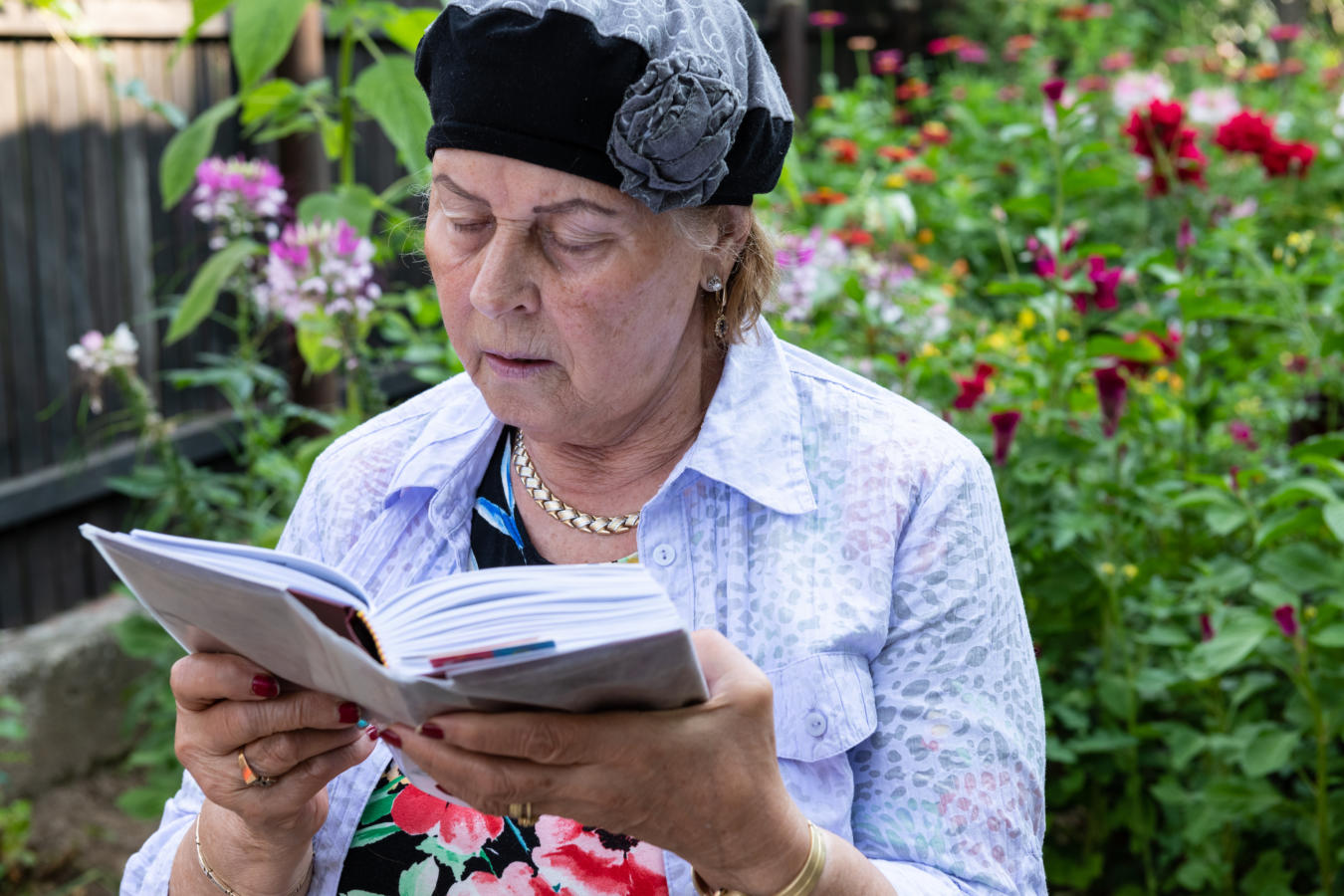The Amidah is the central prayer of Jewish tradition, recited three or four times daily every day of the year. The Amidah is not actually one prayer, but a series of shorter prayers, including three introductory and three concluding prayers. Modim is the first of the three concluding prayers.
Take a deeper look at the themes and significance of Modim here.
Here is the full text of Modim in Hebrew, transliteration, and English translation:
מוֹדִים אֲנַחְנוּ לָךְ שָׁאַתָּה הוּא ה’ אֱלֹהֵינוּ וֵאלֹהֵי אֲבוֹתֵינוּ לְעוֹלָם וָעֶד צוּר חַיֵּינוּ מָגֵן יִשְׁעֵנוּ אַתָּה הוּא לְדוֹר וָדוֹר

Help us keep Jewish knowledge accessible to millions of people around the world.
Your donation to My Jewish Learning fuels endless journeys of Jewish discovery. With your help, My Jewish Learning can continue to provide nonstop opportunities for learning, connection and growth.
נוֹדֶה לְּךָ וּנְסַפֵּר תְּהִלָּתֶךָ עַל חַיֵּינוּ הַמְּסוּרִים בְּיָדֶךָ וְעַל נִשְׁמוֹתֵינוּ הַפְּקוּדות לָךְ וְעַל נִסֶּיךָ שֶׁבְּכָל יוֹם עִמָּנוּ וְעַל נִפְלְאוֹתֶיךָ וְטוֹבוֹתֶיךָ שֶׁבְּכָל עֵת עֶרֶב וָבֹקֶר וְצָהֳרָיִם
הַטּוֹב כִּי לֹא כָלוּ רַחֲמֶיךָ וְהַמְרַחֵם כִּי לֹא תַמּוּ חֲסָדֶיךָ
מֵעוֹלָם קִוִּינוּ לָךְ
Modim anachnu lach sh’ata hu Adonai Eloheinu v’elohei avoteinu l’olam va’ed.
Tzur chayenu, magen yeshuateinu ata hu l’dor vador.
Nodeh lecha u’nesaper tehilatecha chayeinu hamesurim b’yadecha v’al nishmoteinu ha’pekudot lach v’al nisecha shebechol yom imanu v’al niflotecha v’tovotecha shebechol et: erev, vavoker, v’tzohorayim.
Hatov ki lo chalu rachamecha v’ham’rachem ki lo tamu chasadecha.
Mei’olam kivinu lach.
We give thanks to You that you are the Lord our God, and God of our ancestors forever and ever, Rock of our lives and Shield of our salvation from generation to generation.
We give thanks to you and recount your praises, for our lives that are entrusted in your hand, and for our souls that are in your safekeeping, and for your miracles that are with us every day, and for your wonders and good deeds that are with us at all times: evening, morning, and midday.
Good One, your mercies never fail us, Compassionate One, your loving kindness never ceases.
We always hope in you.



